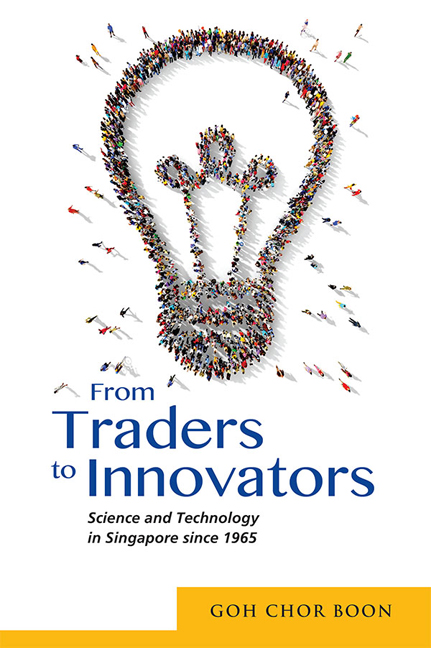Book contents
- Frontmatter
- Contents
- List of Abbreviations
- Introduction
- 1 From Dependency Theory to Creative Innovation
- 2 Surviving and Catching Up in the 1960s and 1970s
- 3 Developing a Technological Growth Trajectory in the 1980s
- 4 State Intervention and Technological Change
- 5 Nurturing a Scientific Culture
- 6 Sociocultural Attributes and R&D
- 7 Towards a Technologically Creative Society
- 8 Conclusion: Power of a Service-Brokerage Culture
- Bibliography
- Index
- About the Author
8 - Conclusion: Power of a Service-Brokerage Culture
Published online by Cambridge University Press: 19 May 2017
- Frontmatter
- Contents
- List of Abbreviations
- Introduction
- 1 From Dependency Theory to Creative Innovation
- 2 Surviving and Catching Up in the 1960s and 1970s
- 3 Developing a Technological Growth Trajectory in the 1980s
- 4 State Intervention and Technological Change
- 5 Nurturing a Scientific Culture
- 6 Sociocultural Attributes and R&D
- 7 Towards a Technologically Creative Society
- 8 Conclusion: Power of a Service-Brokerage Culture
- Bibliography
- Index
- About the Author
Summary
Singapore's Research, Innovation & Enterprise (RIE) 2015 Plan targets to develop the nation into one of the world's leading research-intensive, innovative and entrepreneurial economies. The Singapore Government will invest $16.1 billion over 2011–15 as part of its RIE$ 2015 plan. This is 20 per cent increase over 2006–10 and demonstrates Singapore's continued commitment to both basic and mission-oriented research for public sector institutions. The city-state is reviewing its science and technology programmes and policies ahead of the 2015 tranche of science funding, which could be up to $20 billion. In 2012 gross expenditure on R&D (GERD) was $7.2 billion, or 2.1 per cent of GDP. This is on par with the GERD figures of small advanced nations such as Israel and Sweden.
Notwithstanding the government's deep commitment to research, innovation and enterprise, Singapore's S&T policy is still highly dependent on foreign inputs. While the government can pump in money to sustain research conducted at the various A*Star institutes and universities, the reality is that it is a huge challenge for the small island nation to achieve scientific and technological selfreliance, as managed by small countries like Israel, Japan, Taiwan and South Korea. Moreover, the transfer and diffusion of scientific and technological knowledge and skills owned by the foreign experts to local Singaporeans is never guaranteed. There is also no critical mass of Singapore-born scientists and research engineers. The number of Singaporeans and permanent resident RSEs actually declined by 1.5 per cent from 21,702 in 2011 to 21,380 in 2012. On the other hand, the number of foreign RSEs grew by 12.2 per cent during the same period. Although the problem can be somewhat alleviated by the “foreign talents” who eventually decide to become Singapore citizens, this pathway could add to the already contentious issue of the government giving away jobs to foreign nationals. Particularly in the biomedical sector, the limited number of Singaporean scientists is also compounded by the problem of Singaporeans generally not being keen to pursue higher degrees and to undertake R&D activities. To top it off, the returns on investment in biomedical R&D is unpredictable. In short, Singapore's aggressive foray into biomedical research could, at best, achieve its aim of luring the big names in pharmaceutical manufacturing to set up shop in Singapore and, in the process, contribute to the national wealth.
- Type
- Chapter
- Information
- From Traders to InnovatorsScience and Technology in Singapore since 1965, pp. 196 - 212Publisher: ISEAS–Yusof Ishak InstitutePrint publication year: 2016



